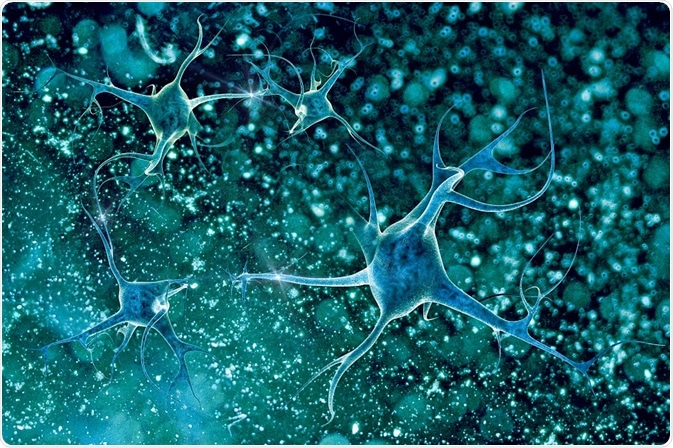What is Motor Neurone Disease?
Motor neurone disease is a rare condition of the nervous system that leads to loss of muscle control. The disease leads to progressive weakness, muscle wastage and eventually disability.
 Credit: vitstudio/Shutterstock.com
Credit: vitstudio/Shutterstock.com
The disease is caused by the degeneration of specialist nerve cells in the brain and spinal cord called motorneurons. These motorneurons control important muscle movements such as walking, speaking, swallowing, breathing and gripping. As the disease progresses, these actions become increasingly difficult to carry out and eventually the patient finds them impossible.
The cause of motor neurone disease is not clear and no links to diet, lifestyle or race have so far been established. However, genetic predisposition may be a factor, with around 5% of sufferers having a family member who has also suffered from the condition or a related illness called frontotemporal dementia.
In motor neurone disease, symptoms are painless and usually develop gradually over the course of months. In most cases, only one side of the body is affected at first. Some common examples of the first symptoms to develop include a weakened grip, difficulty lifting the arms, slurred speech, and dragging of the leg. A flopping of the foot or “foot drop” caused by weak ankles is another symptom.
There are no specific tests that can diagnose motor neurone disease. Diagnosis is based on a detailed clinical examination performed by a neurologist. Sometimes, specialised tests may be advised to rule out other disorders that may have similar features. Around 10% to 15% of people with motor neurone disease also have frontotemporal dementia, which can alter personality and behavior.
There is currently no known cure for motor neurone disease. Treatment is aimed at easing symptoms and compensating for the loss of mobility, swallowing and speech problems, for example. One medication has been shown to improve patient survival in some cases but the treatment cannot stop disease progression. Most people who develop this condition do not survive beyond three to four years from the start of symptoms, although some patients survive for up to ten years or more.
Sources
- www.nhs.uk/conditions/Motor-neurone-disease/Pages/Introduction.aspx
- www.neura.edu.au/…/…%20the%20patient%20in%20general%20practice.pdf
- www.mndassociation.org/…/…ith%20MND%20guide%20-%20normal%20pdf.pdf
- www.mndassociation.org/…/…20(MND)%20might%20affect%20breathing.pdf
- http://jnnp.bmj.com/content/74/suppl_4/iv32.full.pdf
- www.mndaust.asn.au/…/More-Facts-2011-web.aspx
- http://www.nice.org.uk/nicemedia/live/13057/49885/49885.pdf
Further Reading
- All Motor Neurone Disease Content
- Motor Neurone Disease Causes
- Motor Neurone Disease Diagnosis
- Motor Neurone Disease Symptoms
- Motor Neurone Disease Epidemiology
Last Updated: Feb 27, 2019

Written by
Dr. Ananya Mandal
Dr. Ananya Mandal is a doctor by profession, lecturer by vocation and a medical writer by passion. She specialized in Clinical Pharmacology after her bachelor's (MBBS). For her, health communication is not just writing complicated reviews for professionals but making medical knowledge understandable and available to the general public as well.
Source: Read Full Article


